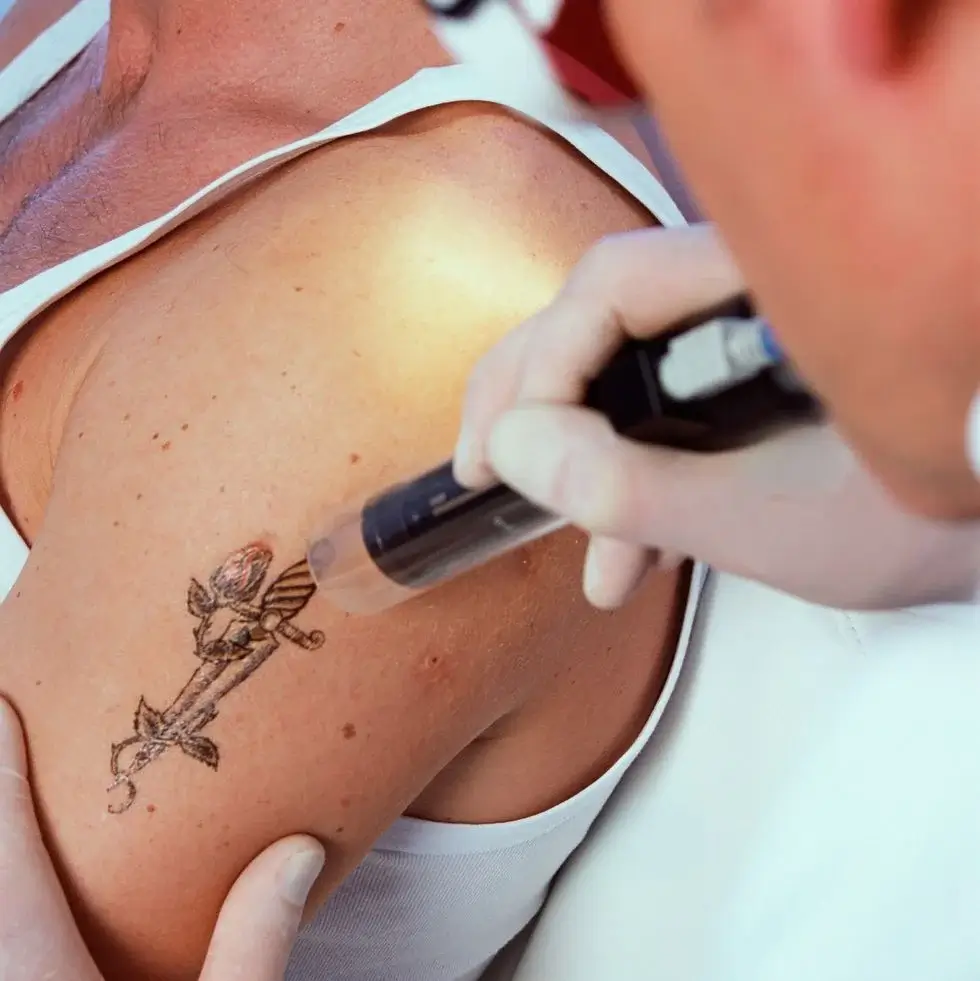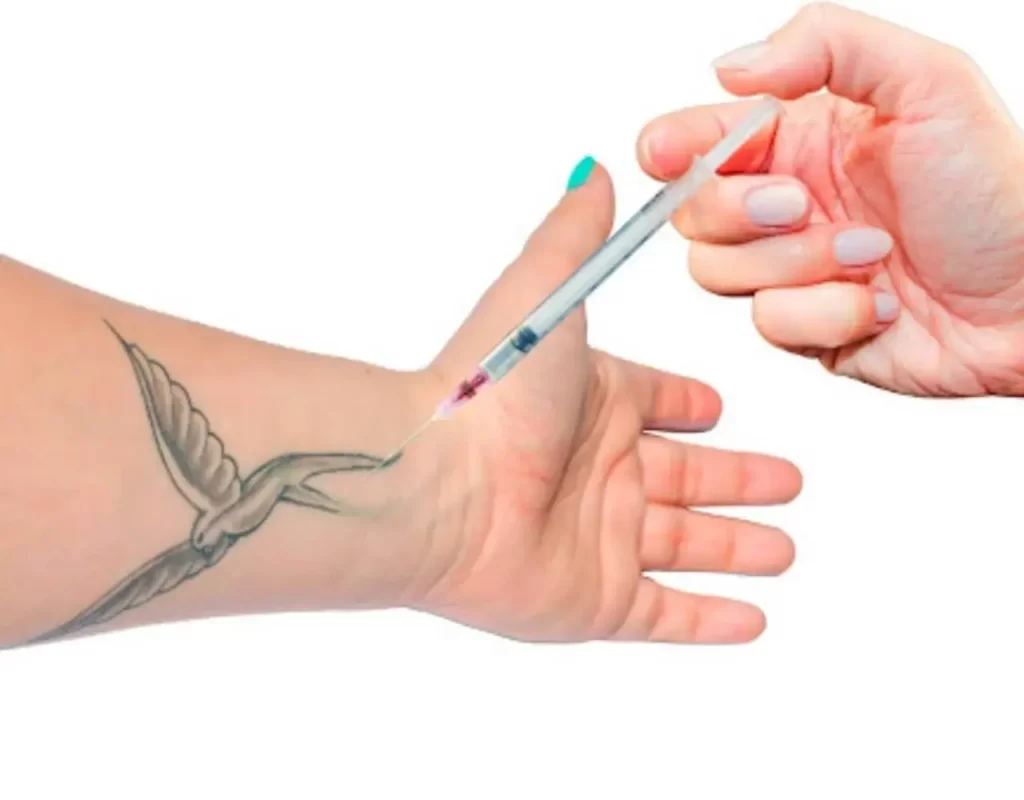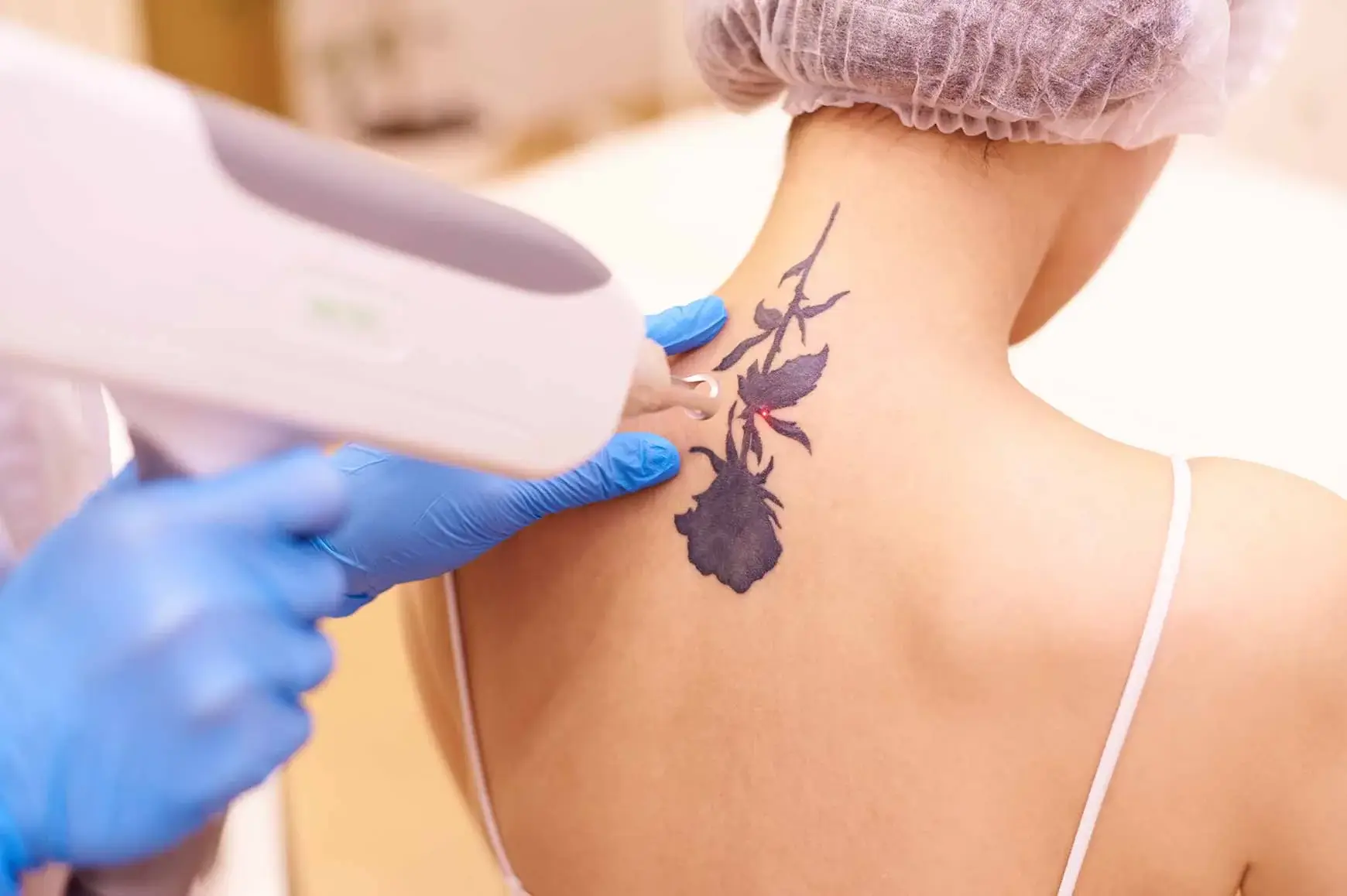One commonly asked question is, “How long after a tattoo can I have surgery?”
This query became personally relevant to me when I found myself in a situation where my excitement and fun from getting a new tattoo quickly turned into concern about an upcoming surgical procedure.
Deciding on the place for my tattoo was thrilling, but the realization that I had a surgery scheduled shortly after brought a complex mix of feelings and concerns.
Consulting with my doctor was crucial. They explained the importance of allowing the body to heal from the tattoo first. A fresh tattoo can cause stress to the skin, and undergoing a surgery before the area fully recovers could lead to complications.
The ink needs sufficient time to set in the skin. Following my tattoo artist’s instructions and taking necessary precautions before the surgery were essential steps to ensure a safe and successful operation.
What Does A Surgery Consists Of?
Surgery involves detailed preoperative and post-operative care, with doctors conducting tests and giving strict instructions on medication and patient care.
1. Preoperative Care
When preparing your body for surgery, there are several key factors to consider. This includes a specific time period of not eating before the procedure.
Keeping the operated area clean is essential, sometimes involving shaving off body hair.
Abstaining from alcohol and certain blood-thinning medications is crucial to prevent excessive bleeding.
Additionally, testing like blood tests and x-rays ensure your readiness for surgery.
In the context of recent tattoos, it’s vital to ensure that the tattooed area is fully healed, as this can impact the preoperative process.
From personal experience and expertise, I understand the importance of allowing the skin to recover fully before undergoing any surgical procedures.
This consideration ensures a safer and more effective surgical experience.

2. During Surgery
The good news is that if nothing concerning shows up during preoperative care, the surgery should proceed smoothly.
The anesthesiologist will administer anesthesia to numb the area and ensure you don’t feel anything, essentially putting you in a deep sleep.
This careful management ensures that recent tattoos, provided they are properly healed, do not complicate the procedure.
My own experience in healthcare has shown that thorough preparation is key to a successful surgery, with special attention given to any recent skin alterations, like tattoos, to avoid complications.
3. Post-Operative Care
Post-operative care is crucial, especially after getting a tattoo before surgery. In the hospital, medical staff will observe for any post-surgery complications.
Patients are instructed to follow specific do-and-don’ts, take prescribed medication, and monitor how their body heals.
Regular follow-ups with the doctor and necessary tests ensure the body’s conditions are optimal for recovery.
In my professional experience, paying close attention to the tattooed area during recovery is essential, as it can influence the healing process.
How Will A New Tattoo Affect Surgery?
A new tattoo can significantly affect your surgery. Understanding the basics, a fresh tattoo is essentially an open wound where the skin has been pierced.
It needs time to heal properly before undergoing surgery. If not fully healed, it can lead to complications. For instance, there’s a risk of infection which could cause further complications during the surgical process.
Drawing from my expertise in healthcare, I’ve seen how crucial it is to ensure that any recent skin alterations, like new tattoos, are completely healed to avoid any adverse effects during and after the surgery.
1. Risk Of Infection
The risk of infection is a critical concern when considering surgery after getting a tattoo. Tattoos create open wounds, potentially compromising the skin’s integrity.
Signs of infection should prompt doctors to reschedule the surgery. While antibiotics may mitigate the risk, there’s still a little chance of the wound being exposed to possible infections.
In healthcare, it’s a huge no to operate on freshly tattooed skin, as it significantly increases infection risks.
My experience in medical settings underscores the importance of fully healed skin before surgery to minimize these risks.
2. Sight Of Operation
When considering surgery, the sight of operation is crucial, especially if it’s near a recent tattoo.
The area to be operated upon, if inked, carries a higher chance of infection due to vulnerable skin tissue.
Surgeons often advise waiting until the tattoo ink has fully set in, reducing risks of damage or disfiguration.
Operating on a freshly inked spot can lead to complications, as the disturbed area might not only affect the tattoo’s appearance but also pose health risks, potentially introducing bacteria inside the body.
In some cases, surgeries have been canceled or rescheduled to ensure safe and effective healing of both the tattoo and the surgical site.
3. Blood Tests
When considering the timing of surgery after getting a tattoo, blood tests play a significant role. These tests assess if tattoo ink particles have passed out into the blood, a rare but possible occurrence when blood vessels are pierced during tattooing.
Although typically in small amounts, these particles can sometimes reach the liver, potentially complicating post-surgical recovery.
Doctors and nurses use these tests to ensure that the body is ready for surgery, reducing unforeseen risks and ensuring patient safety.
4. Heart Rate Readings
In the context of surgery after getting a tattoo, the heart rate readings can be a concern. Doctors often use pulse oximeters, a device placed on the fingers, to monitor heart rate and oxygen rates using infrared light.
However, tattoos in the area where the device is placed can sometimes block this light, leading to inaccurate readings.
This can disrupt the assessment process, making it challenging for medical professionals to determine if a patient is ready for surgery.
Therefore, the placement and recency of tattoos are important considerations to ensure accurate monitoring and patient safety.
5. MRI
When planning surgery that requires an MRI (Magnetic Resonating Imaging), the presence of tattoo inks containing metals like iron, cobalt, or nickel can be a concern.
These metals can interfere with the imaging process, especially if the tattoo is older and fully healed.
In cases where excess ink leaks into the skin, the magnetic properties of these metals might cause the MRI images to be distorted.
This distortion is crucial to consider, as it can impact the accuracy of diagnostic imaging before surgery.
6. Anesthesia Administration
The administration of anesthesia in surgeries, particularly when administered near the spine to numb a specific part of the body, can be complex near tattooed areas.
For example, if a patient has a tattoo on their lower back, it might pose challenges for the anesthesiologist.
Injecting anesthesia through inked skin, especially in the sensitive spinal area, could potentially lead to problems or health complications.
This is a critical consideration for both patient safety and the effectiveness of the anesthesia during surgery.
7. Blood-Thinner
In the realm of surgery post getting a tattoo, the use of blood thinners becomes a critical point of discussion.
These medications are often a no-no in post-operative care when one has recent tattoos.
This is because blood thinners can increase the likelihood of a bleed in the tattooed area, especially if the ink hasn’t fully set.
The concern is primarily around the risk of a blood clot during or after surgery, which can be complicated by the presence of a fresh tattoo.
My Personal Experience
In my personal experience, the timeframe between a tattoo session and undergoing surgery can be critical.
I recall consulting with a doctor who advised waiting several weeks after getting my tattoo before considering any surgical procedures.
This delay ensured that the tattooed skin fully recovered, reducing risk factors associated with fresh ink.
Tests were also necessary, as existing tattoos, especially those on the lower back, can sometimes produce false or inaccurate readings during medical evaluations, making the sight of operation difficult to assess.
For patients with recent tattoos, like myself, there’s an added layer of consideration. The risk of aggravating the scar becomes more noticeable if surgery is rushed.
In my case, waiting an extra month proved beneficial. It allowed the tattoo to heal nicely and ensured that the surgical area was careful and clear of any complications that might arise from the healed tattoo.
This precaution is vital for anyone in a similar situation, emphasizing the importance of fully healed skin before surgical interventions.

FAQs About How Long After A Tattoo Can I Have Surgery
1. Does A Lower Back Tattoo Affect Surgery?
Lower back tattoos may concern an anesthesiologist during surgery, especially if anesthesia is administered in that area, potentially leading to problems. However, this doesn’t always prevent surgery.
2. Do Tattoo Ink Contain Metals?
Tattoo inks often contain metals in their pigments to enhance color vibrancy.
3. How Long After Surgery Can I Get A Tattoo?
Wait until fully healed from surgery before getting a tattoo to minimize infection risk and avoid blood-thinning medication that can cause excessive bleed, ruining the tattoo.
4. How Long Should I Wait To Have Surgery After Getting A Tattoo?
Wait at least 2 weeks after getting a tattoo before undergoing surgery to reduce risk of pre-operative infection, including procedures like eyebrow microblading.
5. Why Do They Ask If You Have Tattoos Before Surgery?
Doctors ask about tattoos before surgery as recent ink in the area increases risk of damaging skin tissues and complications, potentially slowing down the healing process.
6. Can You Get A Tattoo A Month Before Surgery?
Getting a tattoo a month before surgery is generally acceptable, but avoid procedures like eyebrow microblading within 2 weeks prior to reduce risk of pre-operative infection. In specific hospital settings, for heart monitoring, ensure natural finger and toenail visibility, as you may need to remove false nails and polish.
7. Can You Get A Tattoo 3 Weeks Before Surgery?
It’s advisable to avoid getting a tattoo 3 weeks before surgery to reduce the risk of pre-operative infection, especially procedures like eyebrow microblading within 2 weeks prior.
8. Can I Get A Tattoo Before Surgery?
Getting a tattoo before surgery, ideally more than 2 weeks prior, helps reduce risk of pre-operative infection. In specific hospital settings, especially for heart monitoring, maintaining natural finger and toenail appearance is crucial, sometimes requiring to remove false nails or polish.
9. Can I Get A Tattoo After Surgery?
You can get a tattoo after surgery, but it’s best to wait until the incision has healed; doctors often recommend waiting until a scar is at least six months old to minimize risk.
10. Can You Get A Tattoo Before Knee Surgery?
Getting a tattoo before knee surgery is not advised; similar to procedures like removing ingrown toenails or piercings, it can introduce bacteria to the body, increasing infection risk.
11. How Soon After Laparoscopic Surgery Can I Get A Tattoo?
It’s best to wait approximately 2 months after laparoscopic surgery before getting a tattoo, especially if planning one elsewhere on the body.
Final Thoughts
In conclusion, when considering “how long after a tattoo can I have surgery,” it’s crucial to not worry excessively but to be well-informed.
While tattoos may look harmless, their presence can potentially affect surgical outcomes and lead to complications.
It’s generally advisable to postpone getting new tattoos until fully recovered from any surgery. Ultimately, your health and safety should be the priority.
These final thoughts aim to guide individuals in making informed decisions regarding tattoos and surgeries, ensuring minimal risks and optimal healing.
You May Also Like To Read:
- Is Bactine Good For Tattoos
- Optimize Tattoo Aftercare: Is Dial Gold Good For Tattoos?
- Nighttime Tattoo Care: Can You Sleep On A New Tattoo With Saniderm
- Unveiling The Truth: Can Tegaderm Ruin A Tattoo?
- The Enigma Solved: When Can I Use Scented Lotion On My Tattoo?
- Tegaderm Vs Saniderm: Fortify Your Ink With The Ultimate Defense
- Unlock The Mystery: Tattoo Scab Fell Off Raw Skin Underneath Revealed!
- Calf Tattoo Hurts To Walk? Discover Proven Strategies For Pain-Free Steps
- Is Dove Soap Good For Tattoos
- What Happens If You Use Scented Soap On A Tattoo: Surprising Truths Unveiled!
